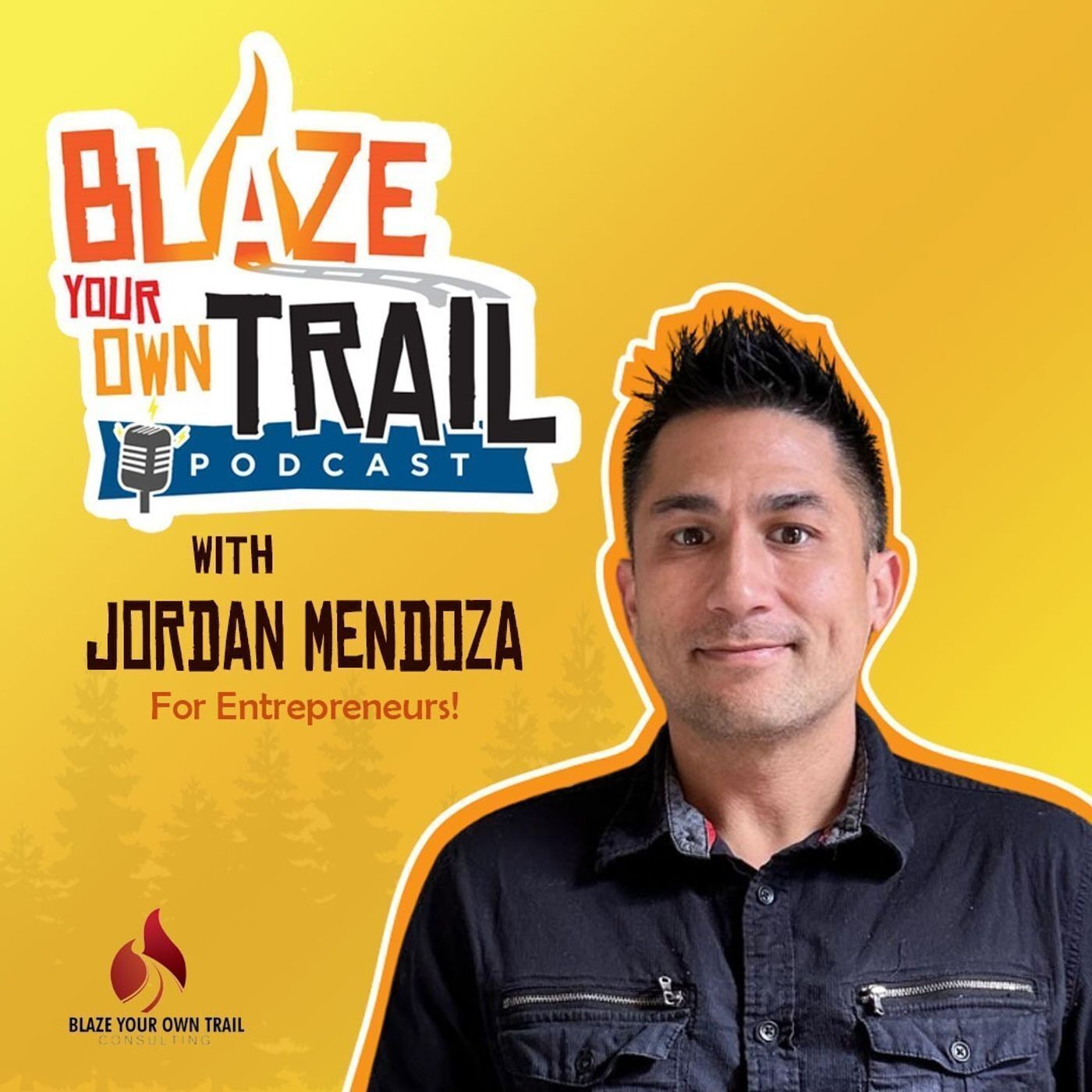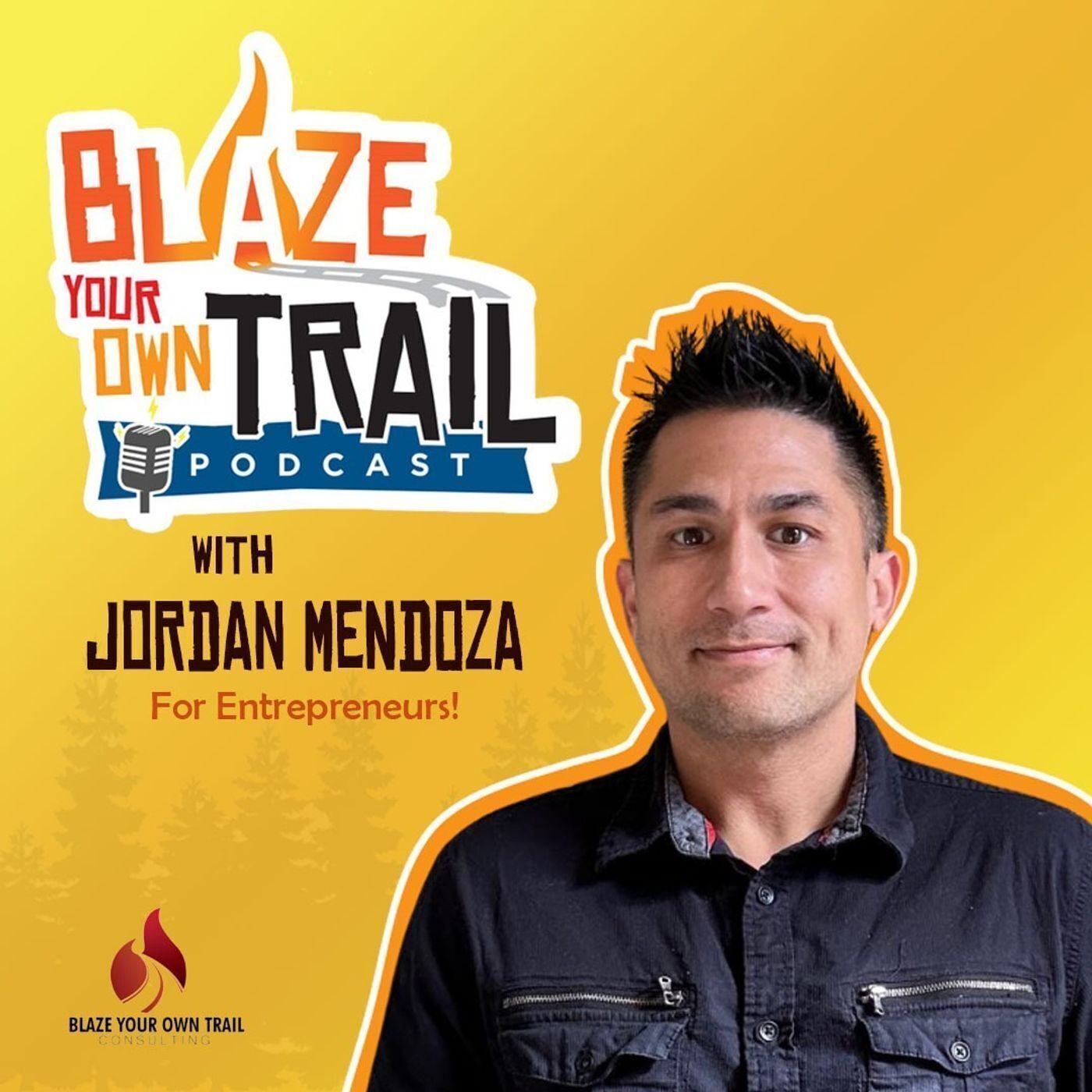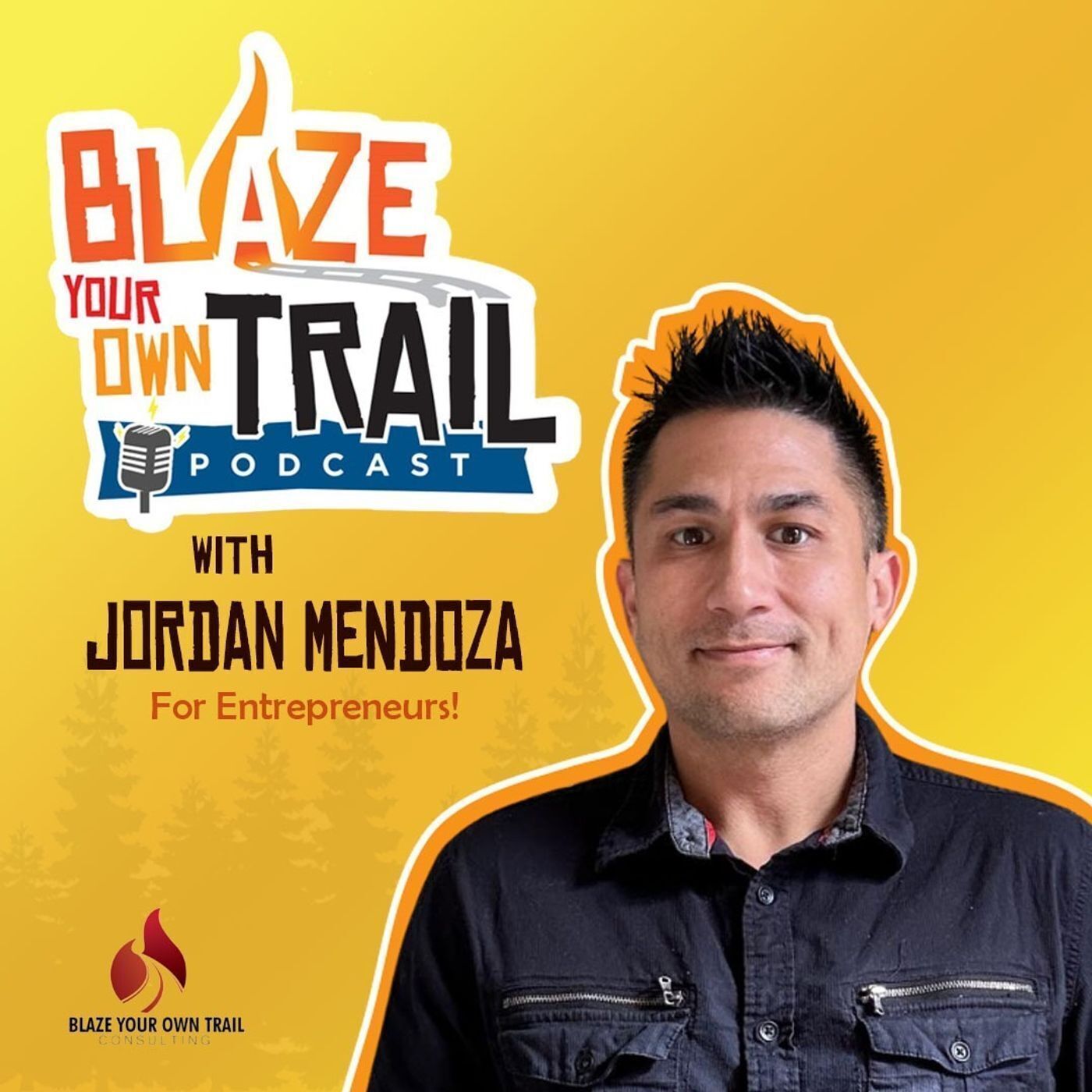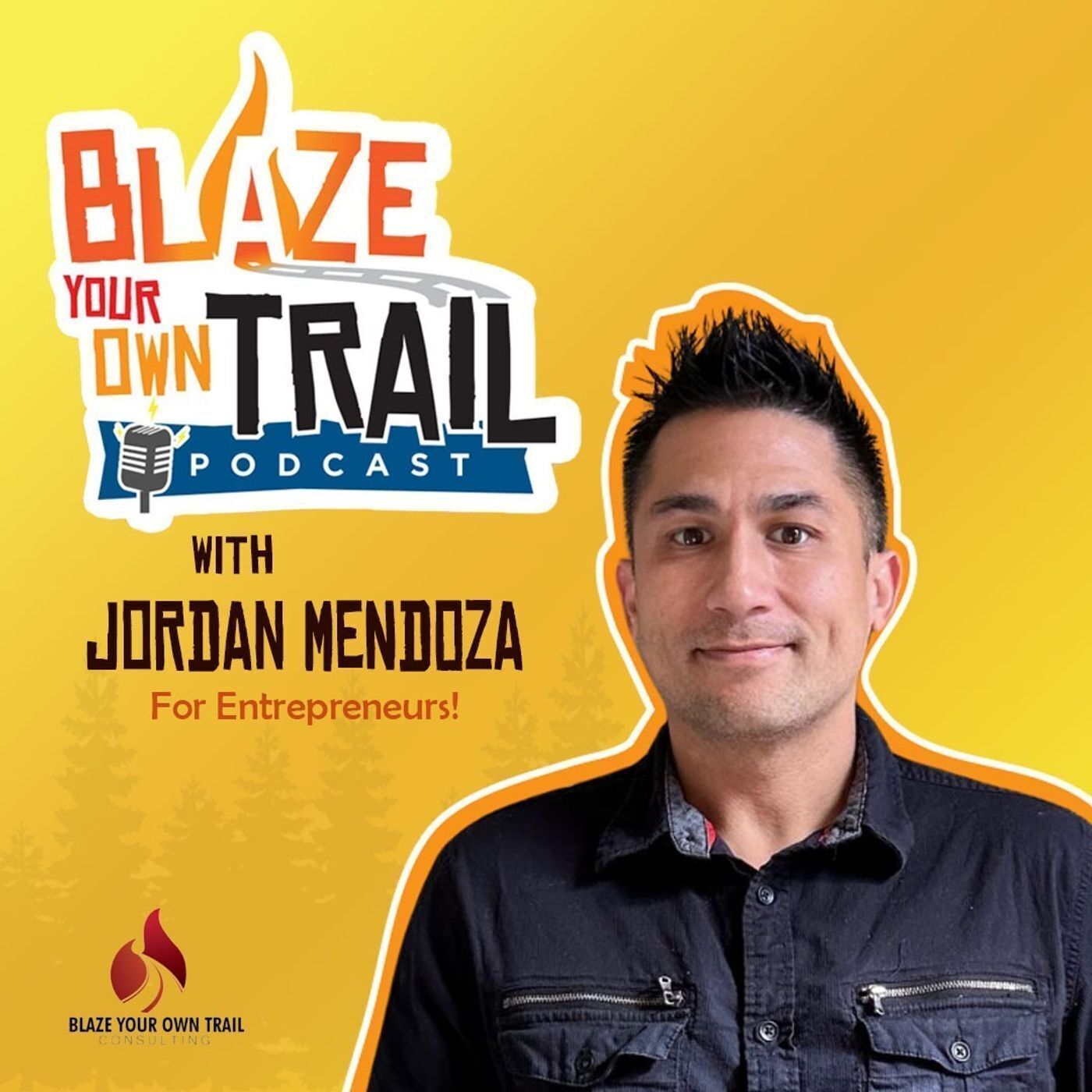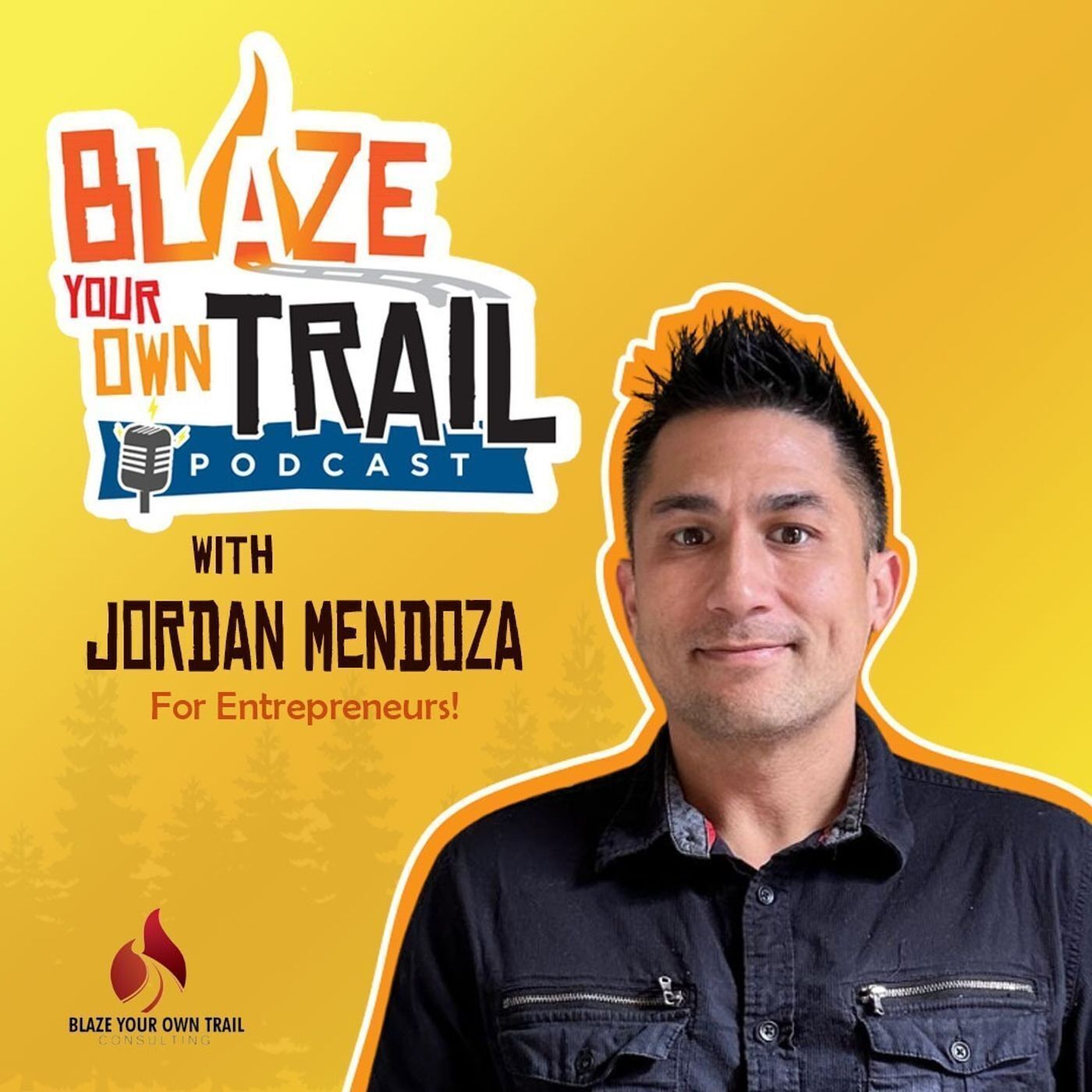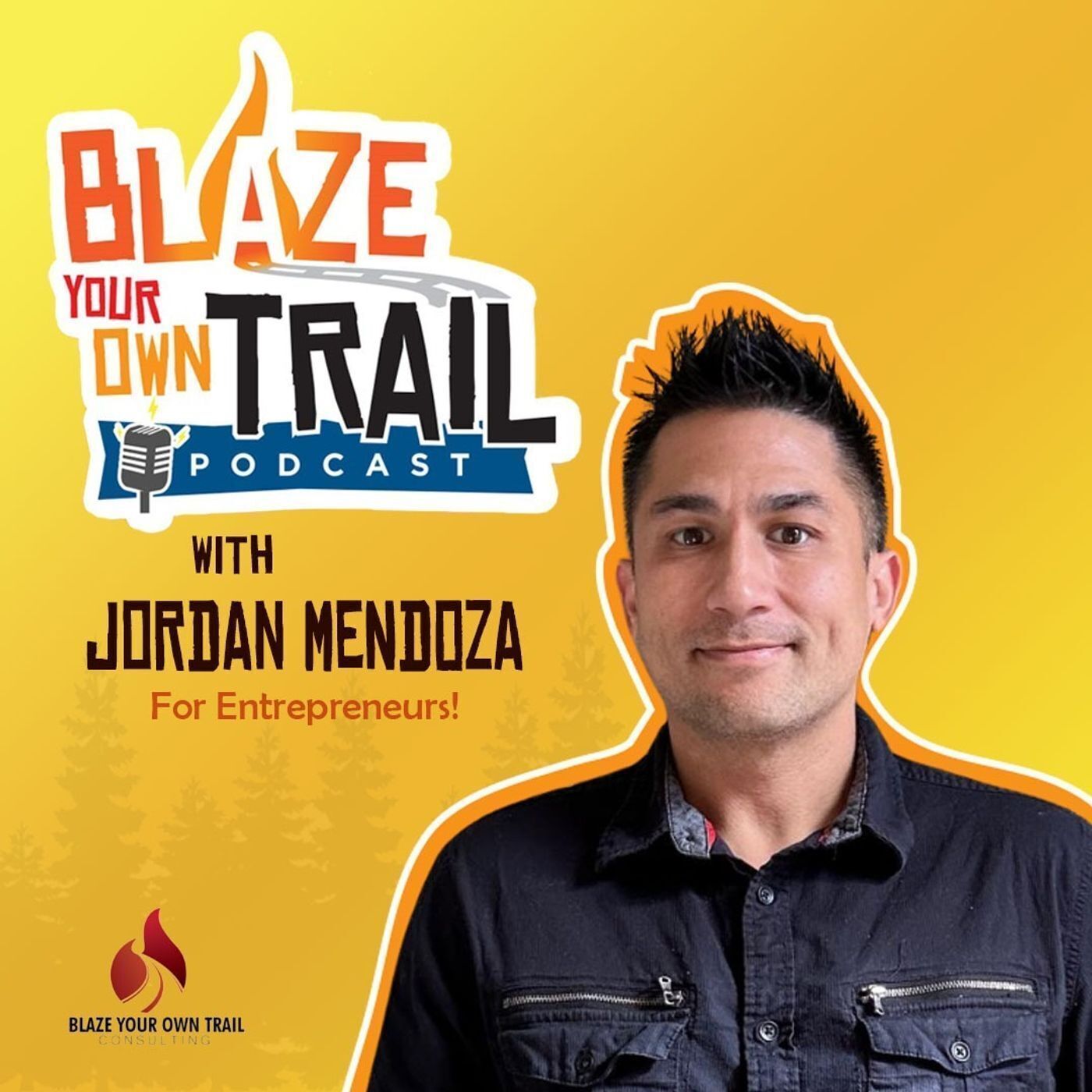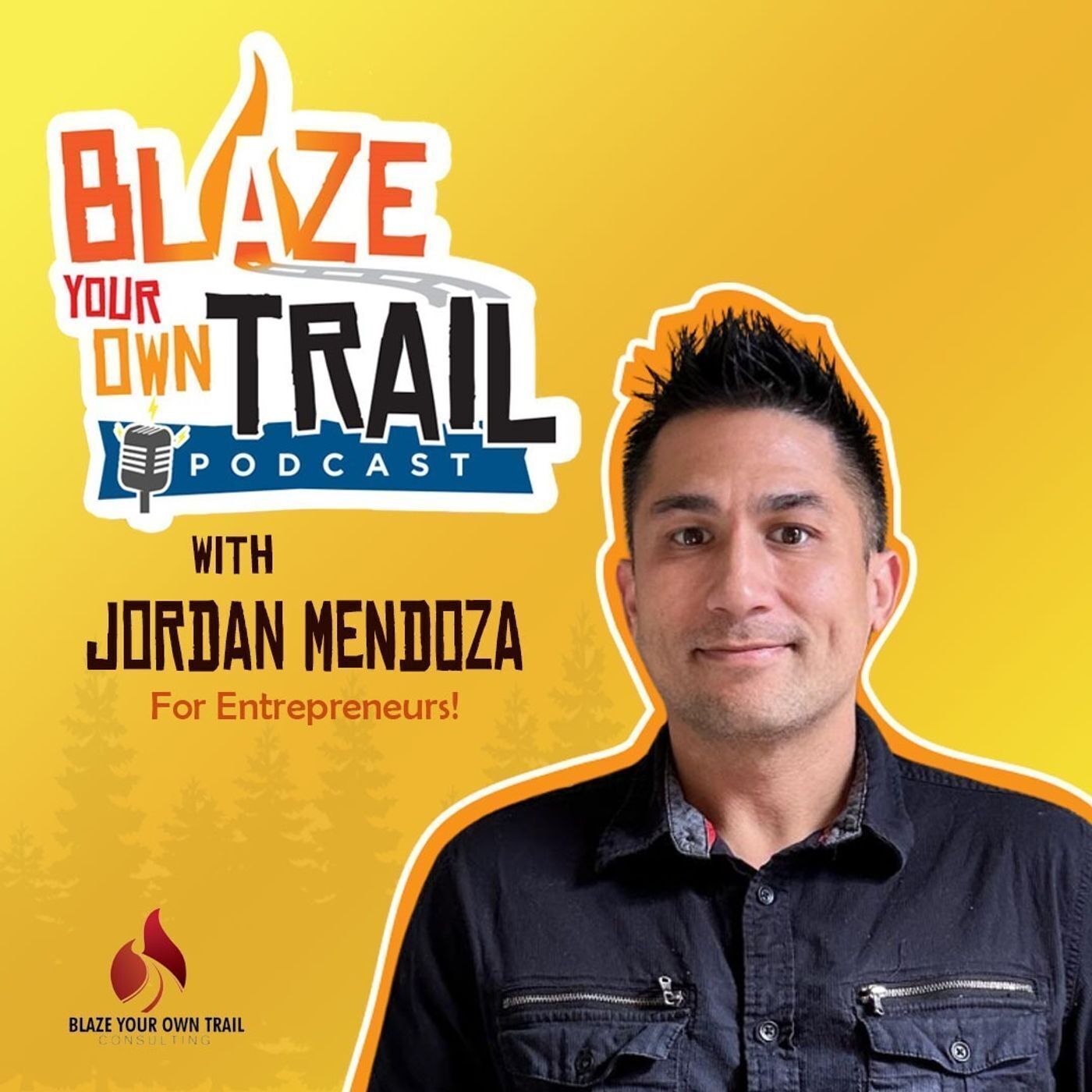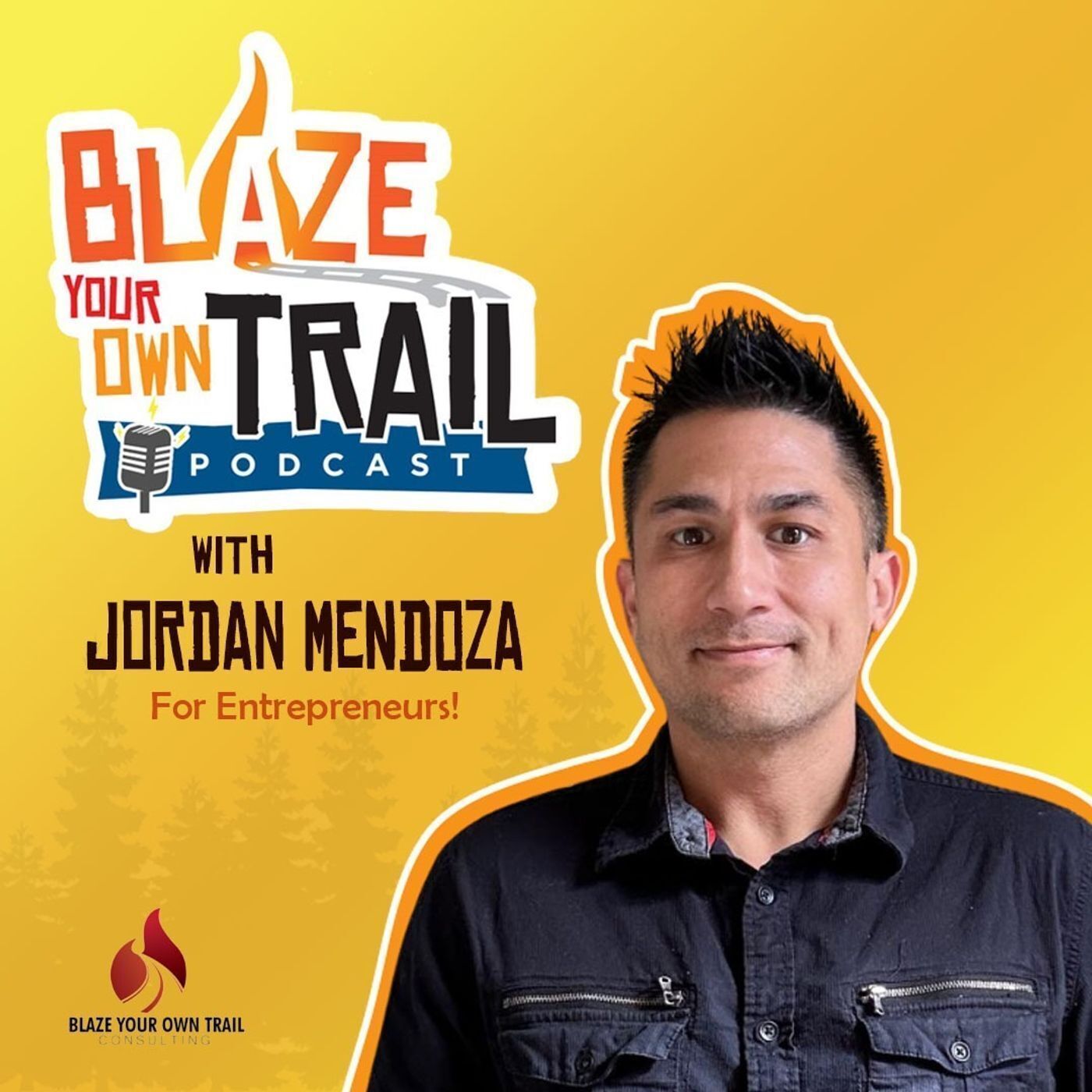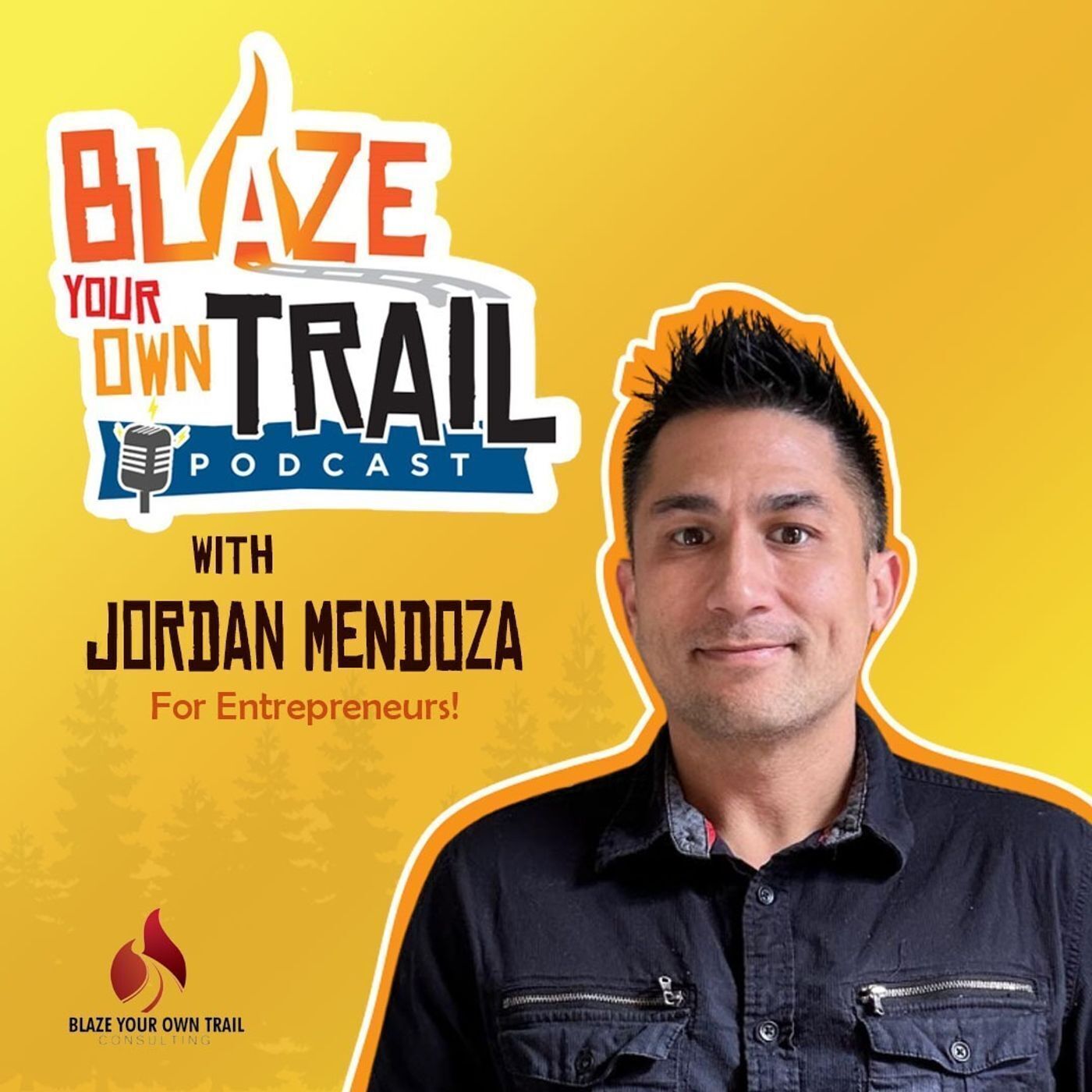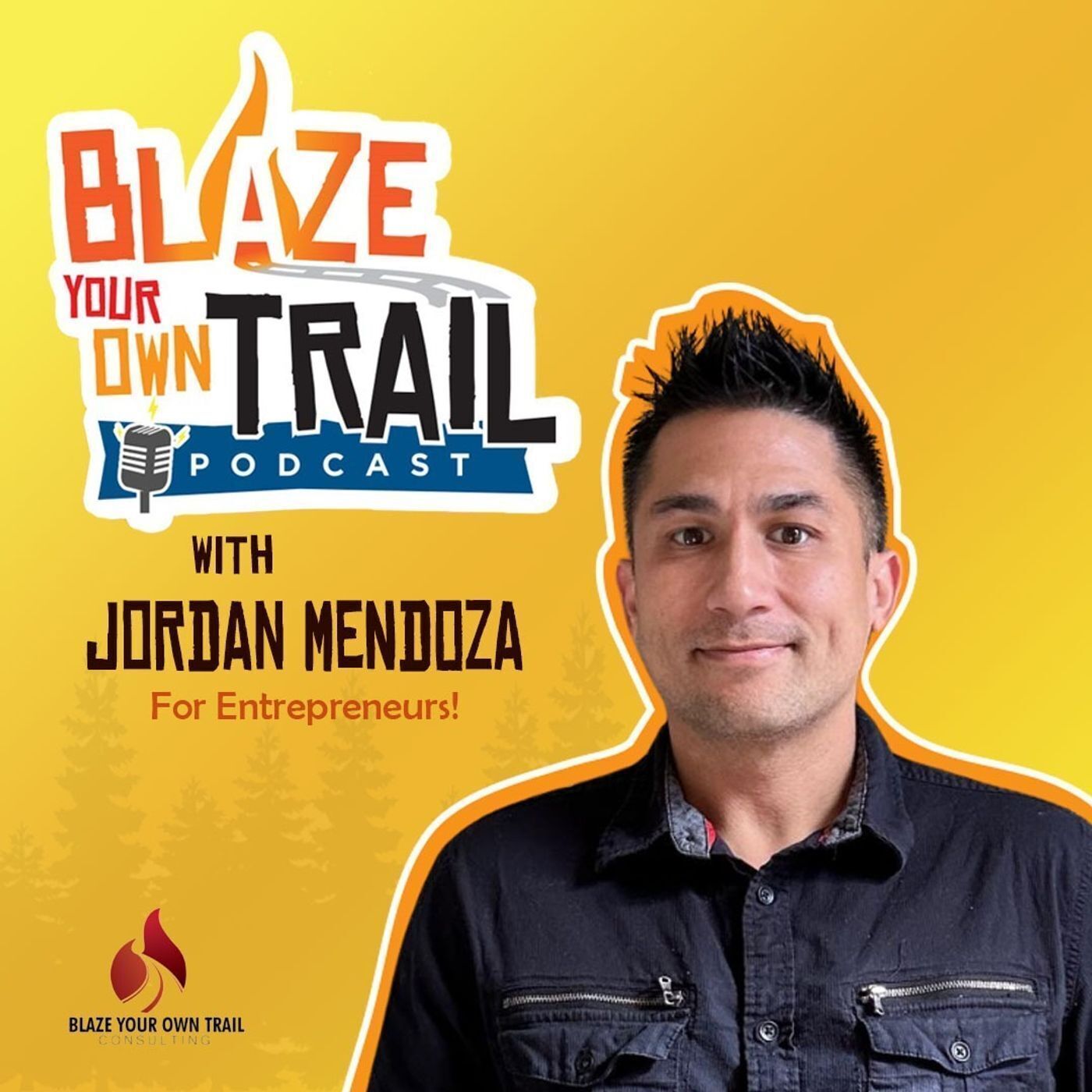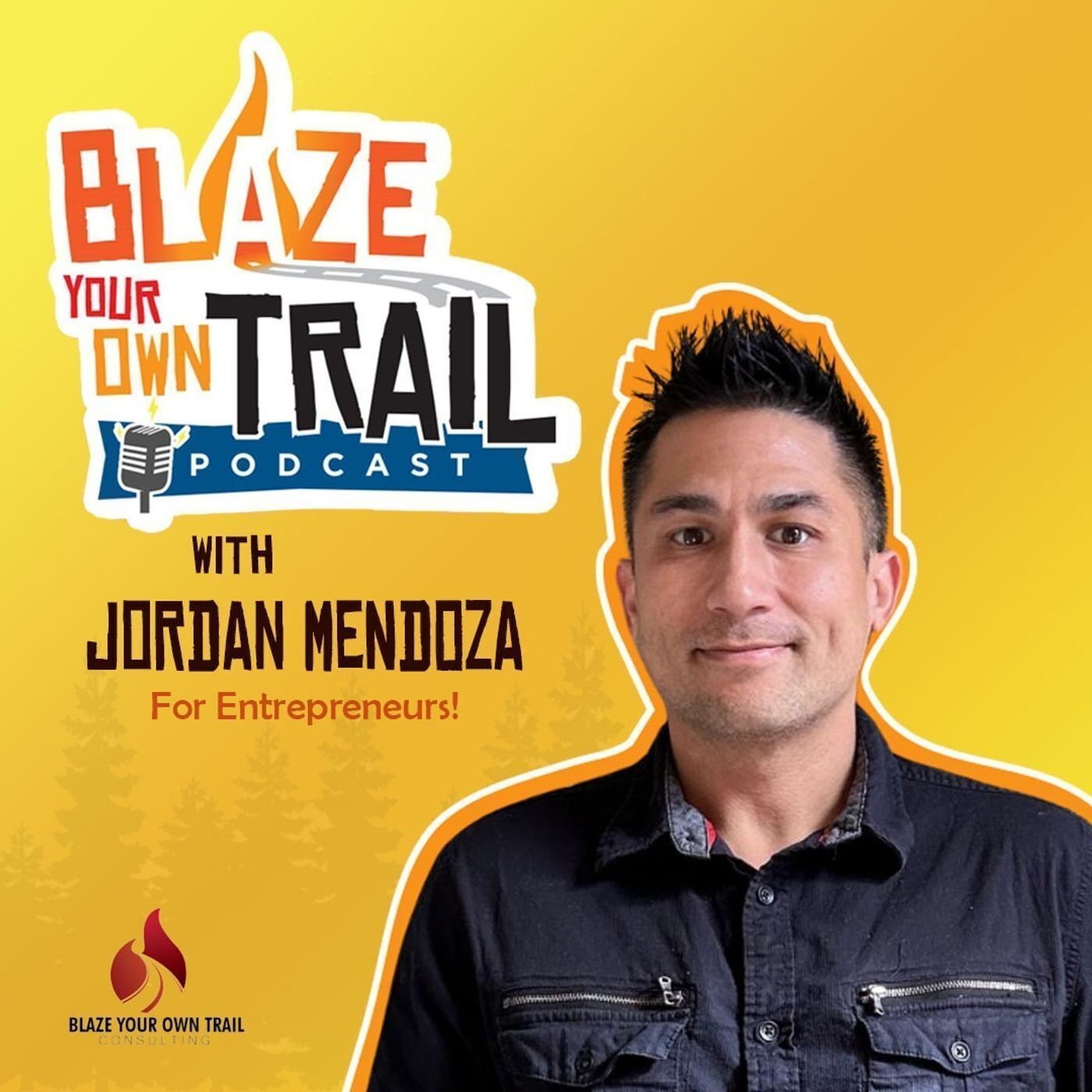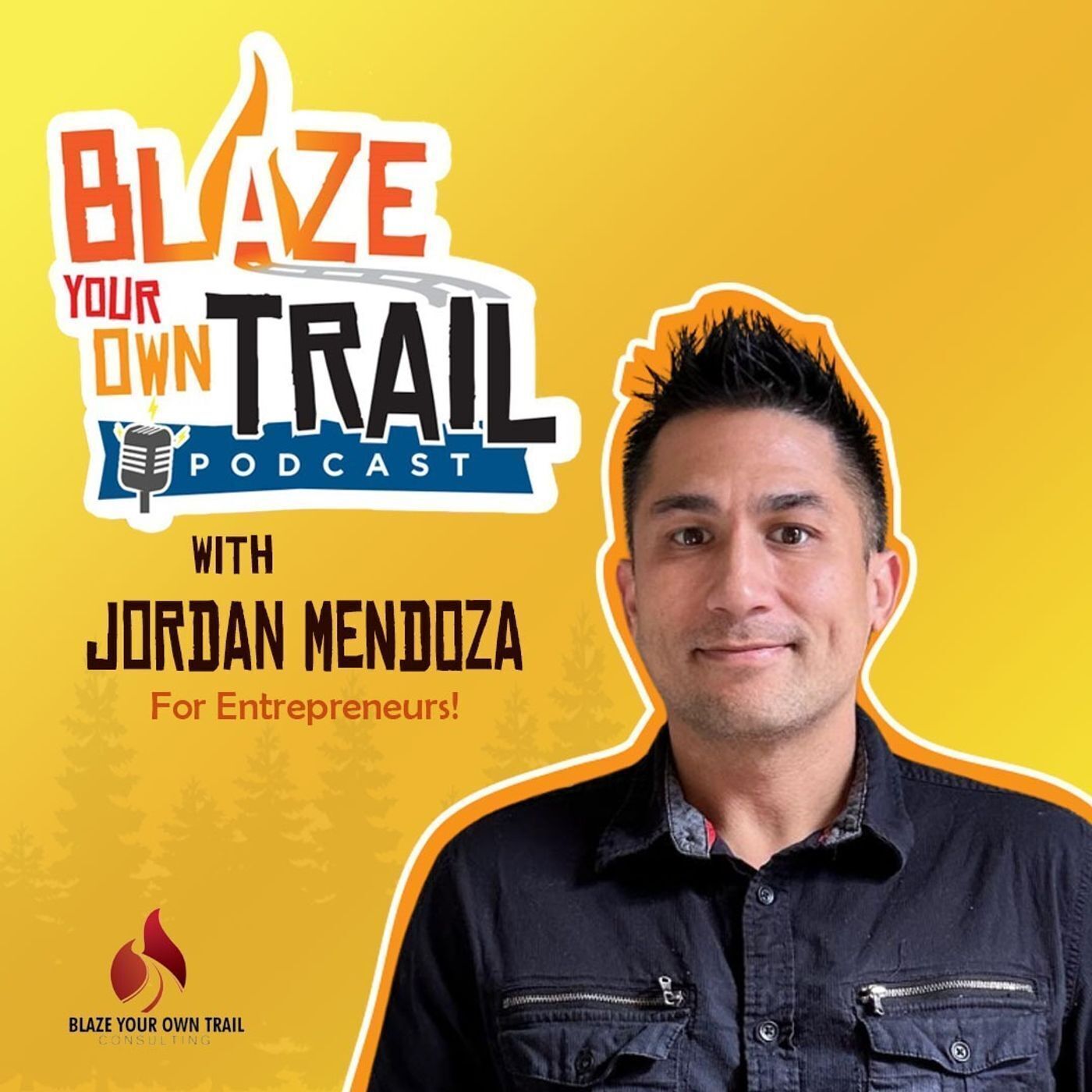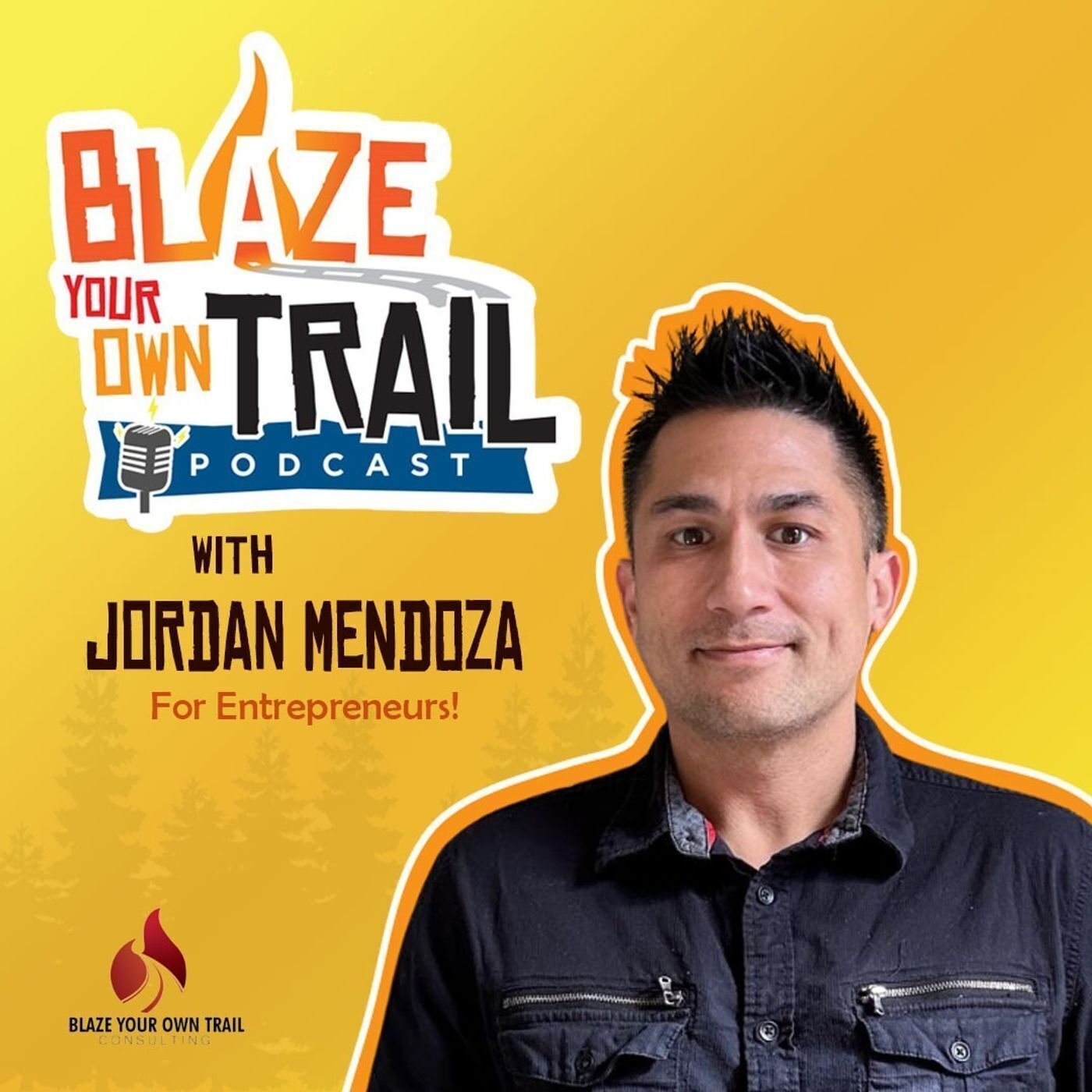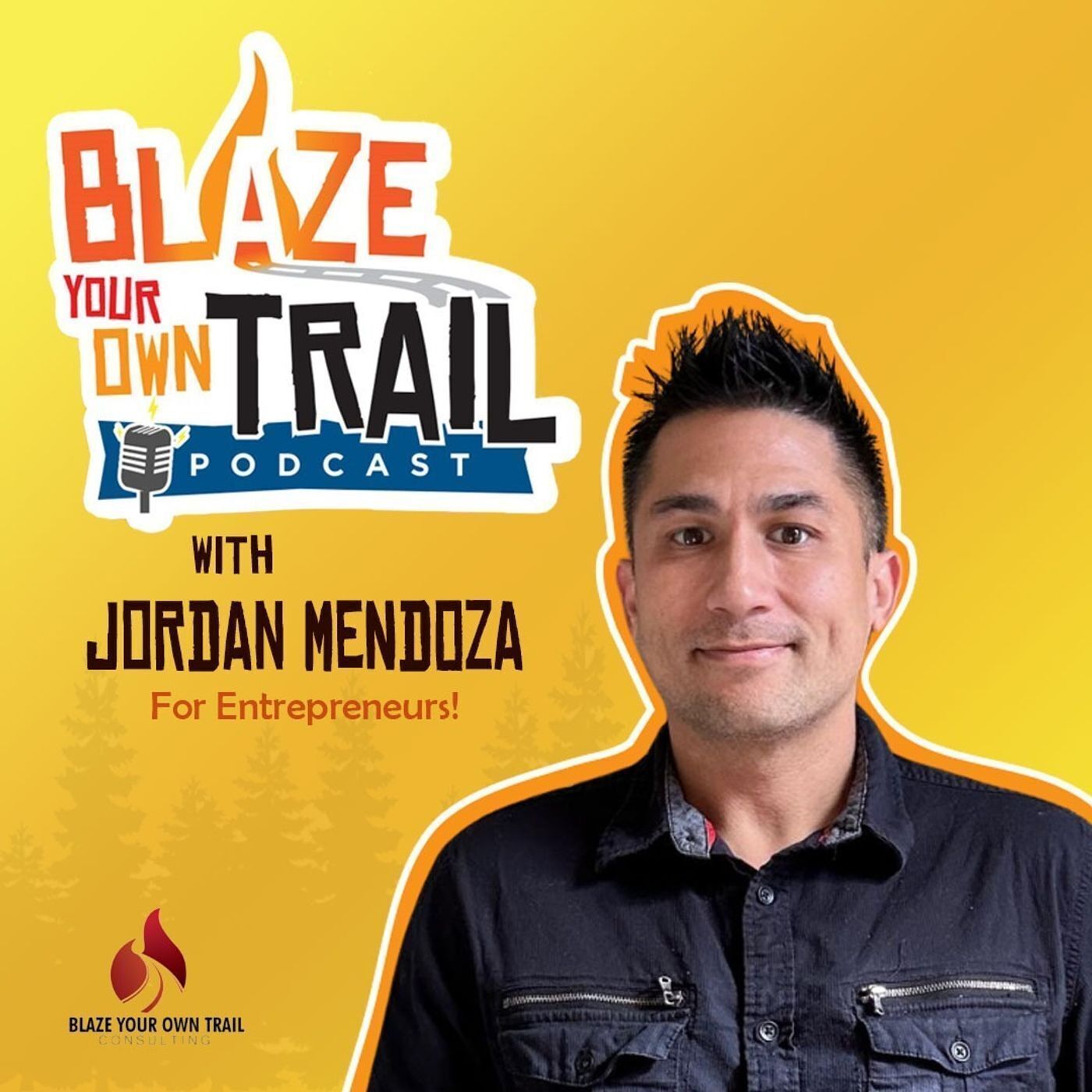

Summary
In this episode of the Blaze Your Own Trail podcast, host Jordan Mendoza interviews Norman Wolfe, a consultant and advisor to CEOs. Norman shares his journey from a childhood in Brooklyn, New York, to his career in aeronautical engineering and eventual transition into management and consulting. He discusses the challenges he faced in his early management roles, the decision to leave corporate life, and the lessons learned throughout his consulting career. Norman emphasizes the importance of relationships, self-discovery, and following one's inner voice in achieving personal and professional success.
Takeaways
- Norman's early aspirations were to become a pilot, but he pivoted to aeronautical engineering due to vision issues.
- His career path was not linear; he transitioned from engineering to management unexpectedly.
- Norman faced significant challenges in his first management role, receiving poor performance reviews.
- He learned the importance of understanding people and their motivations in management.
- Leaving corporate life was a conscious decision for Norman, driven by a desire for personal fulfillment.
- His first consulting client came unexpectedly, highlighting the importance of relationships in consulting.
- Norman emphasizes that consulting is about building trust and relationships, not just selling a product.
- He learned to value himself and his expertise, which affected his pricing and client interactions.
- Norman's journey led him to discover his purpose in helping organizations execute better.
- He advises others to take action, understand their context, and build supportive relationships.
Chapters
00:00 Introduction to Norman Wolfe
01:02 Early Life and Aspirations
06:33 Transition to Management
12:15 Challenges in Management
15:23 Leaving Corporate Life
19:45 Starting a Consulting Career
26:35 Finding Purpose in Consulting
28:49 Tips for Transitioning from Corporate to Consulting
Connect with Norman: https://www.quantumleaders.com
Connect with Jordan:
Join Jordan's weekly Group Coaching Community Risk Free
Installing strategic sales systems & processes will stop the constant revenue rollercoaster you might be facing which is attainable through our 6 Week Blazing Business Revenue Coaching Program
Book a discovery call with Jordan now to learn more!
Are you a Podcast Host or Guest?
PodMatch helps the right podcast guests & hosts find each other faster and automates administrative work, so you can focus on what matters: recording interviews that serve listeners.
Hosted by Simplecast, an AdsWizz company. See pcm.adswizz.com for information about our collection and use of personal data for advertising.
The Blaze Your Own Trail Podcast is powered by:
Jordan Mendoza (00:01.998)
Hello everyone and welcome to the Blaze Your Own Trail podcast. My name is Jordan Mendoza, I'm your host and I've got a very special guest today. His name is Norman Wolf and I'm gonna have him tell you a little bit about who he is and what he does today.
Norman S Wolfe (00:18.062)
Thanks for having me on your show. I am a consultant advisor to CEOs. I live up in the Portland, Oregon area, actually across the river in Southwest Washington, Vancouver. And yeah, that's what I do.
Jordan Mendoza (00:36.097)
Awesome. I appreciate you coming on the show and I'm excited to share with the audience, your story of blazing your own trail and how that's come to be. So my favorite part is actually taking a rewind. You know, let's find out about little Norman, you know, so where were you born and raised and, you know, what kind of kid were you? We're going to go back to the adolescent years, you elementary, middle and high school years.
Norman S Wolfe (01:02.638)
That's going back quite a few years. So I was born in Brooklyn, New York, middle class Jewish family. My grandparents came from Russia. My mother was actually born in Poland. Very large, very small immediate family, but very large extended family. So think holidays, of immediate family of 40 people, typical.
Jordan Mendoza (01:32.226)
Big family,
Norman S Wolfe (01:32.302)
I to school at Brooklyn Tech High School, one of the three, what do call it? You have to take a test to get into those schools, Brooklyn Tech, Stuyvesant, and Bronx High School of Science. So I went to Brooklyn Tech, graduated, wanted to be a pilot when I was a teenager, but because of eye problems, I couldn't be a fighter pilot, and I didn't want to just be a...
Navigator or bombardier or anything like that. So I decided if I couldn't fly him all design him So I kind of guided my career towards aeronautical engineering Went to New York University on the fencing scholarship actually and then graduated and started my career at Pratt & Whitney aircraft as a engineer working on the fuel cell technology and I was in charge of the
Norman S Wolfe (02:30.754)
real-time data acquisition system. I was responsible for the system that took the data off of the test cells and analyzed it and gave it back to the engineers for review and that kind of stuff. So that's kind of how I started my life.
Jordan Mendoza (02:44.585)
Very cool. Yeah, so it sounds like you like solving problems. Yeah, just kind of. Yeah. Yeah, that's great. And, know, also, it sounds like you kind of knew what you want to do and you, you know, went towards one thing. And then when that one thing, you know, didn't ultimately work out the way you wanted to, you were able to pivot. Was that pivot easy?
Norman S Wolfe (02:49.806)
I guess that's a good way to put it. Yeah, I'm a problem solver.
Norman S Wolfe (03:02.284)
you
Jordan Mendoza (03:13.004)
You because obviously, you you said it like it just happened pretty quick, but I don't know. Was that an easy pivot? Was it hard to deal with the fact that you couldn't you couldn't fly? I'd love to just get some context there.
Norman S Wolfe (03:26.008)
Sure, easy. In hindsight, it feels like it was smooth. I think if I put myself back in that time when it happened, a huge amount of disappointment.
Norman S Wolfe (03:40.382)
And interestingly enough, he said I had a focus. I always did seem to have a focus of where I thought I wanted to go, but where I ended up was not anywhere near where I thought I would go. So I thought I would be, excuse me, I thought I'd be flying airplanes. My cousin was a pilot in the Air Force and for my bar mitzvah, he gave me his wings. And that was the greatest bar mitzvah gift I ever got. That was like my dream to be a pilot.
and to fly. I did get my private pilot's license, never became a pilot. And then I thought, well, if I couldn't fly him, I'll become an aeronautical engineer and build him. So I went to Pratt & Whitney aircraft, but I ended up working in fuel cell technology. Mostly I ended up working with computers, which evolved my career. And I was disappointed when I got to Pratt & Whitney and found out I was in a computer group, not an engineering design group. Absolutely.
I actually felt betrayed in many ways during that period of time because I thought I was promised one thing and ended up with something else. But then I found out I loved working with computers. It was a joy. was like you said, I'm a problem-solving. That's a lot of what working with computers is, finding out how to solve some problem and design a program that would do the analytics and run the tests and all of that.
So I ended up, from that I ended up working with Yola Packard, right, because we were using HP equipment. They got to know me, I got to know them, and an opportunity happened. And I ended up moving to California. Then I have a plan to go to California. Wasn't on my radar, except one really cold, snowy New England day snowed in and I had a conversation with a support person who came in from California. I said, hey Steve, you got any opportunities? And he said,
Yes, California. I've never been to the West Coast. Maybe that'll be a cool opportunity. Got with HP and I was a technical person and never really gave any thought to moving into management, but got a position in management. And that changed my whole life because I went from being a technician or a technical person, an engineer or problem solver of things to being a...
Norman S Wolfe (06:07.67)
leader of organizations and still problem solving. The different problems said, how do you get people to form a certain way and collectively get results? So yeah, my whole career was one to the next to the next and I never planned any of it. I mean, I thought I planned it, but that never happened the way I thought.
Jordan Mendoza (06:21.858)
Yeah, so here's the
Jordan Mendoza (06:33.26)
Yeah, so what's harder to solve? Computers, systems, processes, or people?
Norman S Wolfe (06:41.998)
As in all problem-solving challenges, the key to being able to solve them is to have a deep understanding of what the dynamic forces are that you have to play with. People aren't really that difficult if you really come to understand what drives us, what makes us tick, and how we perform and why we perform, which I spend
really most of my life trying to figure out the answer to that. Things are easier because they follow certain physical rules. People follow some physical rules, but mostly you might call it psychological or psychospiritual rules. But there are rules, and they do affect us, and it does drive how we perform and behave.
Jordan Mendoza (07:36.546)
Yeah, yeah, I would say people are, you know, they are.
a, you're able to figure them out, but it's not an easy, feat, know, especially with, you know, multiple, I mean, you have different personalities, you have different backgrounds, different cultures, different, all the things and possibilities of being different. And I think the reason why I say that is the last three years I've been doing business out in Europe. So Belgium, France, Netherlands, you know, it's people are people, but it's
Norman S Wolfe (07:50.647)
Well.
Norman S Wolfe (08:06.7)
That was true.
Jordan Mendoza (08:11.776)
It's different, different cultures, different communication styles, different interpretations of that communication style. So I've learned the hard way on a few occasions, that, hey, well, I guess I can't say that, or maybe that's not the right thing, right? But it's all a process, and we've got to figure it out, and we have to keep being active in it.
Norman S Wolfe (08:36.31)
You know, I think the here's a metaphor to think about when we're dealing with things, machines, products. They follow certain rules of physics and we can design accordingly and we feel like we have a sense of control over what we're making the thing do. When it comes to people.
They also have followed a certain set of rules, but we're not very knowledgeable about what those rules are in the first place. So think of it like we understand the rules of Newtonian physics, but if you try to apply the rules to Newtonian physics to the quantum field, they don't work. And most of our attempts at working with people comes from this
I call it mechanistic or Newtonian or logical rational domain. And we really want to be in control of the situation. The difference is like quantum physics, there's kind of a, how do I want to say it?
a mystical energy that makes things happen that isn't intuitively obvious from the Newtonian logical rational mind. And the other thing about people is you can't make them do anything. You've got to work with their power to make choices. If you know how to work with that, if you know how to work with what are those unconscious forces that drive us to behave, culture, as you mentioned, is one of them.
We call it the context field of our being, right? Those belief systems and attitudes. And if you know how to honor that and work with that with people, it's pretty amazing how you can, I'll use the word motivate, but stimulate them to do what's good for the organization, for example, or good for the family or good for the relationship, whatever, whatever grouping you're talking about. They can make choices. And once they know they, you know,
Norman S Wolfe (10:54.814)
given a choice, things begin to gel and then things begin to happen in a really cool way. So the problem is replying Newtonian physics laws to quantum physics reality, so to speak, metaphorically. And that's why it's so difficult.
Jordan Mendoza (11:00.397)
Yeah, and I've noticed.
Jordan Mendoza (11:09.198)
Yeah, that's 100%. Yeah, it's definitely, it's difficult, but it's when you get to the other side of maybe a perceived conflict, it's pretty powerful. You know, it's powerful when it works, right? When it happens and you see it and you witness it and you're a part of it and then you're like, wow, what a major breakthrough. So let's talk about that. You you come from a place where you're going to
Norman S Wolfe (11:23.552)
It's very powerful.
Norman S Wolfe (11:30.51)
That's right.
Jordan Mendoza (11:36.693)
fly planes and unfortunately that doesn't happen to now. Hey, you want to build them and then that doesn't even happen. And you're into the system side and you get good at that. So good that they promote you into management. So now here you are, you're a manager and you're just like, okay, what am I doing here? What am I doing here in management? So talk about that first management role that you had, you know, what was the experience like? you know, did you get thrown to the wolves? Did you have a good trainer and mentor? You know, I'm just curious.
How did that play out and then where did you go from there? Did you stay with HP for a while? Did you end up going out, going somewhere else?
Norman S Wolfe (12:15.222)
Yeah, so that's a great question. I say with lot of humility and pride that my first review as a manager was unacceptable in every category. So here I am coming off of being one of the highly recognized systems engineers in not only the sales region I was in, but throughout the country.
There were two of us, on the East Coast and myself that was considered the top of the cream of the crop. Performance reviews, all positive for like three years that was with HP. And here I am in my fourth year with HP and my first performance review was a manager, was abysmal. Did I have a good mentor, coach? No, I probably have probably the worst managers for a first time manager anybody can have.
He had no idea of how to help me. I mean, it's sort of like, just do it like this. And I'm going, huh? Even so being a district service manager, which was my first management position, it's a profit and loss organization. So I had my own P and L statement and I didn't understand profit and loss. I had no grounding in that. I was a technocrat, right?
So he said to me, well, it's just like balancing your checkbook. And I turned to him and I said, what makes you think I balance my checkbook? I mean, literally no connection to my skills, my abilities, no way to coach me. On top of that, I didn't realize it when I took it, but there was a bit of animosity towards me because I came from the sales side of the house and this is the service business. And I didn't grow up in the service business. I wasn't a technician. I couldn't repair computers. And here I am sitting in this.
interesting position with no support. But I'm a problem solver, like you said. I had I was going to go back to being a technocrat again. And a lot of the mentors I had, the general manager of the region, others said, No, Norman, you should, you're going to be one of our top leaders. And I don't know what they saw in me at that time.
Norman S Wolfe (14:33.144)
But they said, you you're beginning to show signs, you're turning the corner, hang in there, you'll do really well and you'll be one of our top leaders. And it turned out to be true. I was one of the top leaders at HP in the sales region. And I was there for 15 years, but it taught me and it's again, was made a shift in what I thought I was going to be to what I ended up being because it put me on the path to really learn how to work with people, which we talked about a little while ago.
But it was that first job that was almost a complete failure that actually was the gateway into a lifelong journey.
Jordan Mendoza (15:12.588)
Yeah, that's great. That's great. So 15 years at HP and why did you end up ultimately leaving and where did you end up going?
Norman S Wolfe (15:22.446)
So why did I leave? I had a great career. Like I said, I was one of the top leaders. In fact, I was so highly recognized that we were going through a reorganization and they asked me to reorganize the administrative function in the sales region for all four regions, which I did. And in that reorganization structure, I eliminated my job because of the way things were changing.
changing at corporate changing in the region. were going from a region structure to an area structure as we were growing. So there was really no need for my position. I had no worries about doing that. People said, Norman, what are you going to do? You won't have a job anymore. said, you know, I've been with HP 15 years. I've many opportunities come my way. I had no doubts that I would find another job.
It also turned out two other forces were beginning to happen. is I was in that 40, 41, 42 age range. So looking back in my life, what does it mean? What did I do? What's next for me? That kind of internal questioning was going on. And at the same time, I began to see certain signs in the change in management within HP. The culture was beginning to change. We saw the repercussions of that.
years later, but I can already begin to sense. And I had a number of opportunities, but none of them felt quite right. And I remember reflecting on it over one weekend, thinking about what am I doing? And am I stuck in this corporate world of what feels like security, but maybe isn't?
Is this what I want to do for the rest of my life? Do I want to be a 30-year corporate person? And the answer was so clearly no. I said, but what am going to do? And he said, just go. And so I quit. And I jumped in and I said, OK, what can I do? I said, I've got this leadership skill background. I've got this business experience background. I've been involved in a lot of aspects at HP and management and organization and leadership.
Norman S Wolfe (17:40.908)
different functions.
I'll go consult. had no, I didn't even know what a contract looked like. I didn't know how to invoice. I knew nothing about consulting. I joined a group of a consultant support group in Southern California and I started to pick people's brains and figure it out and what do I do and how do I do it and how do you charge and why do you do this and how do you write a contract and what does a contract look like? And I got through networking my first client, which actually surprised me.
And then, well, here I am 30 some odd years later still consulting. So something was right about that.
Jordan Mendoza (18:20.226)
Yeah, yeah, that's no, that's great. So, and this is important for our listeners to hear because you might be in your early forties, listen to this and it might be time for you to hang it up at corporate, you know, he might be sitting there. in for the last decade, you've said, this might be my last year. need to go do the thing that I'm passionate about. I need to go explore this potential opportunity and
Uh, Norman did it, you know, I did it at 40, uh, when I decided to blaze my own trail and leave corporate after 15, 15 years there. Um, so it is possible. And, uh, what I actually found is that what was possible on the other side of my yes to leave was way bigger than I could have ever dreamed. And I'm excited to get into, uh, Norman's journey and some stories and some lessons. And then we're going to dive into some tips from him on how you can.
get to three decades of consulting. What does it take? And I'm pretty confident it's a lot of nos, a lot of failure, a lot of ups and downs and lefts and rights, but we're gonna hear straight from the man himself. So let's dive into it, Norman. What was it like getting that first person to say yes? And now you're at a point where it's like, I gotta figure out, you're figuring all the stuff out, building the plane while it's...
you know, going up in the sky, you know. So talk a little bit about, you know, getting that first contract and then, you know, did you have after that first one, do you feel like your systems were good enough to sustain something or did you continue just to fumble through?
Norman S Wolfe (19:45.848)
while it's flying here.
Yeah.
Norman S Wolfe (20:04.0)
I think for the last 30 years, even now, feel like, I don't know, stumbling through may not be quite right, but building the airplane while it's flying feels pretty close to the way life is most of the time. Sometimes I call it retooling the production line while the production line is running. I mean, there's this really odd thing. You know, when I got that first client, like I said, was...
Pleasantly surprised. I didn't know about it. I didn't know anything about really marketing or networking. I didn't even have a website. I think I had a trifold brochure I did on my home computer. I mean, there's no no formal anything about it. But one thing I did learn kind of also stumbled into this. And there's a statement if you follow your heart things will unfold but that's hard for people to really relate to.
but there's a, there's a way of responding to what life brings you. Right? That first client showed up. don't know how my whole life clients have showed up and it's not, it's not often as a direct result of a marketing campaign. it's in consulting is a lot about relationships, building relationships, connecting with people, because consulting
depending on the kind of consulting you do, the kind of consulting I do is highly relationship. I mean, people are buying the quality of our interaction and the trust in why I advise as much as a product. Selling a product is very different than selling consulting. Coming out of HP sales region, I had a lot of background and experience on the sales process, but that's selling a product. So,
One of the first things I had to learn was to accept the fact that, well, let me put it this way, my ego, when you're selling anything, all salespeople will tell you that there's that fear of rejection that gets in the way. When you're selling a product, they're rejecting the product. Even though it feels lousy, you then get to sale, they're rejecting the product.
Norman S Wolfe (22:32.526)
But when you are the product, there's another layer of personal rejection that comes into play. So that was one of the first things I had to learn about was how do I accept the fact that I'm a product, they're not viewing me as Norman Wolf, they're viewing me as what I offer and they're saying yes or no to that. So that was a growth opportunity for me.
to grow through that. Pricing was another one. Pricing, how do I price myself? It's not like I can go off the shelf and go to the supermarket and find out how much other people are charging for eggs this year. There's no cost of goods that I can mock up, so to speak, and rationalize it that way. I'm selling my knowledge, I'm selling my expertise, I'm selling my insights. Highly intangible.
Jordan Mendoza (23:03.374)
Yeah, absolutely.
Norman S Wolfe (23:31.81)
What's the value of that? And that taught me that a lot of value of what I sell has a lot to do with how much value I value myself. And that comes out in the conversation energetically. Like they ask me, how much do you charge? And depending on how I state that, they'll pick up an energy from me of, you don't believe it's worth that much. So I'm not gonna pay that much.
You know, it's really kind of a, it's like we said at the beginning, there are no rules like Newtonian physics. This is more like quantum entanglement in energy fields that do not play by logical, rational rules. So I had a lot of learning to do that. I also, throughout my career, went into lots of different areas, like should I focus on
leadership training. I focused on sales. I was in the turnaround management area for a while, working with turnarounds. was in the mergers and acquisitions for a while. I did a five-year stint at a startup that was licensing technologies from universities.
Each one felt like this is an opportunity I should explore. And so I went down that path. It's sort of like I thought I wanted to be a pilot and then I wanted to be an aeronautical engineer. was sort of that continuing to follow that, whether you call it that inner voice or that curiosity or that sense of this is what I want to try next. Not all of them turned into a long term, what we might call my lifelong purpose, but all of them
added something to my capability and to my knowledge base. It really wasn't until 2002 when I was refocusing my consulting practice or thinking of what that next twist in the road was going to be. I was talking to the CEO of a company whose I was on their board.
Norman S Wolfe (25:36.46)
And they were a client for many years. So I asked the CEO, why do you keep hiring me as a consultant? And he said, that's easy, Norman. You helped me execute faster. And this notion of execution began to bring all the things together that I had done in my years from startups and venture capital to turnarounds, mergers and acquisitions, sales, marketing, all the different things that I would do over the years.
into what I really began to realize was my long-term purpose, and that is how do I help a collective of people, an organization do better at achieving what they want to achieve, which led me to writing my book, The Living Organization, which led me to build the living organization framework, which led me to build a living organization community of other consultants. So, yeah, the journey of life is you got to follow
Jordan Mendoza (26:31.32)
Love it.
Norman S Wolfe (26:35.948)
your inner voice, if you will, follow that guidance and trust it. Take that leap, leave corporation, jump into this field and see what happens.
Jordan Mendoza (26:45.871)
Yeah, I love it. Love it. Yeah, it's it is one of those things that, you know, people you are going to have fear you're going to. It is the fear of the unknown. You the what ifs, but you know what's what's exciting is if you got to where you are in your career and you know, maybe it it doesn't work out. Well, guess what? You still have experience and knowledge and know how to go back into a career. Ultimately, right? It doesn't mean that you fail. It means that you actually tried something new and maybe it didn't work now.
What if it did work though? And what if you did have the ability to write a book and create a community of other like-minded people and consult around a topic and build a framework? again, you have to remember this folks, all the things that Norman has built over the last three decades have come just, it's intellectual property. He has an information based business, it's him. He is the information.
Norman S Wolfe (27:17.486)
for it.
Jordan Mendoza (27:45.229)
What's important to understand is that he essentially built a personal brand in the consulting space, right? Where everybody knows you and when they hear your name, they tell you that they execute quicker having you there. And that's something that a lot of people struggle with is execution. You know, a lot of people have great ideas. A lot of people have information that's in a notebook, but actually putting one foot in front of the other and
taking action on it is not easy for folks. And so I'd actually love for you, Norman, what are some tips that you can give our audience? Maybe there's people that are just tired. They're like, you know, this is a new year. Like I don't want to be stagnant anymore. I'm tired of having saying that this is the year I'm going to leave corporate. I'm tired of saying, you know, that I'm going to start this side hustle. I'm going to do something that I really love and I'm passionate about. What would you say to those folks or what maybe?
two to three tips could you share to help get them from talking about it to being about it?
Norman S Wolfe (28:49.518)
Well, I love the way you said being about it. There's a part of our framework that I created that has an element of three elements of that help people create results, whether it's an individual or a group of people. And those three elements are the activity we do, the relationships we have and the context we hold. Think of the context as who we are being while we're doing what we're doing. What is the
And it's often an unconscious way of being. We don't normally think about who we are being. Are we being kind? Are we being friendly? Are we being scared? Are we being nervous? Is there trepidation going on? And what's behind that? Our context is really, think of it as a set of stories we created in response to life's experiences. And those stories give meaning to it.
it's important to recognize that we're making up that meaning. There's no inherent meaning in it, but it's the meaning we give those experiences that frame the behaviors we have connected to those experiences or connected to the stories about those experiences. So experience, we create a story that gives a meaning, we create a behavior that's connected to that that we believe will make us feel safe and or successful.
Combine all of those thousands of experiences we have with those thousands of stories and you can think of it like a psychic DNA, a DNA strand of story behavior patterns that get triggered when an event happens that tells us this is how we're supposed to behave. That's how humans are, that's the human operating system, if you will. So we have to do things,
The quality of our relationships either support us or give us energy or drain us. So our relationships. But the most important thing is context. And if I look back at the process I've used that I described, what it really amounts to is I have a sense I want to do something. Like you said, I want to get off the couch. I want to do something. I have to take an action. So that's the activity. That activity is going to trigger some internal response to it.
Norman S Wolfe (31:17.492)
anxiety, fear. The goal is to really begin to do the stance of taking action and discover what your response to that is and find out if that response is supporting you or getting in your way. And it's changing or what we call reframing our context that allows us to become clear. So I mentioned I knew nothing about money, right? Or invoicing and stuff like that in my early days.
I had an experience where I was in a very positive state of being, where I felt really confident about myself and I was talking to a prospect. And at this time our bills, our charges, we were going around 1200, but we wanted to get it up to like 1500. And we had trouble doing it. I say we, was in partnership with somebody at the time. But here I was talking to this CEO and he said, well, what are your charges? Something inside of me from a place of very deep confidence said $2,000 a day.
This is back in the eight nineties, totally different price today. And he said, OK. And what I learned from that is it wasn't what I said. was the way I was being at that moment in time that communicated to him, I'm worth two thousand dollars. that that I was cheap.
Listening to that getting in touch with that in this sense of who I am being while I'm doing what I'm doing is critical to overcoming all your obstacles. So take action first and foremost listen to that voice that says take action and then discover what's getting in your way internally as much as externally and For God's sakes have a supportive network you need relationships that are going to support you because without that you're
It's hard to do on your own, it really is.
Jordan Mendoza (33:09.964)
Love it, love it. Awesome advice, great information. Folks, make sure that you rewind that, jot that information down. It's gonna help you get from point A to B, and who knows, maybe eventually, like Norman here, he's blazed his own trail. He's probably somewhere down near X or something, so we shall see. But listen, it was great having you on and sharing your insights, your story, great information. I know there's gonna be folks that hear this and they,
may want to reach out to you. So where's that best place? Maybe they want to get a copy of the living organization. Maybe they want to join the community or just connect with you. Where's the best place for them to reach out?
Norman S Wolfe (33:52.142)
Great. So to reach out to me personally, n-w-o-l-f-e-n-wolf at quantumleaders.com. That's quantumleaderswithaness.com. Books available on Amazon. In fact, you can get the first three chapters for free at quantumleaders.com forward slash podcast. I make it an offer to all the guests of the podcast I'm on.
Download it, read it, enjoy it. If you really like the first three chapters, go on and get it from Amazon. If you don't like it, well, they can also reach me on LinkedIn. I think you have my LinkedIn information. I never remember the exact LinkedIn. So yeah, that's probably the two best ways to get a hold of me.
Jordan Mendoza (34:28.398)
Love it.
Jordan Mendoza (34:36.066)
Yep. Yep.
Jordan Mendoza (34:44.031)
Perfect. We're going to make sure we link all the info in the show notes so that way people can grab the book, check out your website, grab the free chapters there, as well as connect with you on LinkedIn and maybe shoot you an email. So what would be some parting words as we wrap up here, Norman?
Norman S Wolfe (35:04.71)
I think the advice I'd love to leave your audience is it looks scary out there, but it's your life. No one else can tell you what your trail is. So I'd love your title, Blaze Your Own Trail. Step out into it. You'll feel scared along the way, but really, really rewarded as you find your path in life.
Jordan Mendoza (35:30.848)
Love it. Yes, folks. Trailblazing is not easy, but it's so worth it. It's a very meaningful journey. So, hey, thanks so much, Norman, for coming on the show. Keep blazing your own trail and we'll be in touch here soon.
Norman S Wolfe (35:36.247)
were worth it.
Norman S Wolfe (35:44.226)
Thanks a lot, Jordan. Thanks for having me on.
Jordan Mendoza (35:46.381)
My pleasure.
Norman Wolfe, founder and CEO of Quantum Leaders, and The Living Organization® Community, is a leading voice in bringing about a transformation of the core paradigm of business.
He is a 15-year veteran of Hewlett Packard, has lead companies large and small, been a public company director, and has over 35 years consulting and mentoring leaders in a wide range of industries.
He is the author of The Living Organization, an application of the core principles of how the world works, to how organizations and individuals create their results.
The Livng Organization® Framework is a new way of seeing, a new way of leading and a new way for creating extraordinary positive impact for an organization, and society.




























